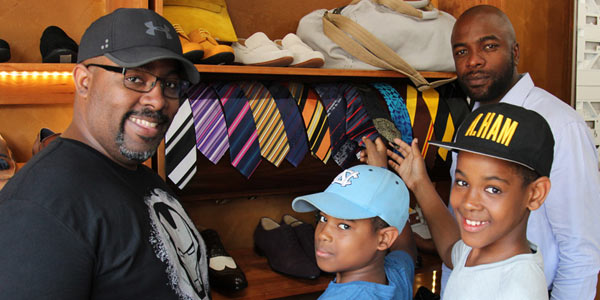In 2016, MacArthur’s newly appointed Chicago Commitment team began to consider how to work in the city and region to advance our goal of Chicago as a city that is connected and integrated, where prosperity is shared, opportunity is equitable, and civic and cultural assets are available to everyone. Building on lessons from the Foundation’s decades of investments in our hometown, we wanted to consider thoughtfully and strategically how to address the opportunities and challenges Chicago faces today.
We spent several months seeking input and guidance from individuals and organizations representing a wide variety of issue areas, populations, sectors, and neighborhoods. During those conversations, a number of themes surfaced, including the need for organizations to access additional resources and support to plan for the future, to invest in organizational infrastructure, to pursue opportunities to expand and grow, and to identify pathways to leadership. We also heard a renewed interest in community initiatives that engage many partners with the goal of achieving significant improvements in long-neglected neighborhoods.
These conversations directly informed our decision to focus two parts of our Chicago strategy on strengthening organizations and supporting the development of influential leaders. We will also participate in civic partnerships organized around timely issues and invest in revitalizing communities that have suffered from disinvestment, isolation or the effects of segregation.
...our Chicago grantmaking [will] help organizations fuel innovation, build capacity, or pursue opportunities for expansion or growth.
As we thought about what it means to strengthen organizations, we reflected on MacArthur’s experience offering institutional support awards to creative and effective institutions. For nearly 20 years, the Foundation has provided exceptional nonprofits critical support to help ensure their long-term sustainability, including building a cash reserve, developing a strategic plan, or making an investment in technology—efforts that many organizations do not have time or resources to undertake while grappling with day-to-day operations. We decided to adopt the same approach in our Chicago grantmaking and help organizations fuel innovation, build capacity, or pursue opportunities for expansion or growth.
We next considered what organizations to support in an initial set of grants, a group we could learn from as we finalized the approach. In the face of rising inequality, economic insecurity, disinvestment, and the public’s lack of trust in institutions, we sought to identify organizations that assist Chicago’s underserved populations while advancing access, equity, inclusion, and community vitality. We considered whether each organization that we considered for support has a clear mission and vision; is connected to and valued by the community it serves; helps to enhance the strength of other organizations with time, expertise, connections, and support; and has people of color among its senior leadership positions.

To strengthen the civic and community infrastructure that underpins our goal for Chicago, we provided $6.9 million in two- or four-year Community Capital Grants to 10 organizations.
We have confidence in these organizations, and believe that an infusion of institutional support at this time will enable each to bolster its core operations, enhance its impact, and plan for and invest in the future. Going forward, we will identify an annual focus for community capital grants, as described in our strategy summary and guidelines. In 2018 and possibly beyond, we anticipate awarding Community Capital Grants to organizations whose work increases safety, peace, and justice in Chicago communities.
Chicago’s civic landscape is notable for its broad network of philanthropic, corporate, and nonprofit organizations. MacArthur is proud to be among local funders that often come together to support major civic endeavors. Such civic partnerships may address a unique opportunity, such the National Park Service’s designation of the historic Pullman neighborhood as an urban National Monument.
In this spirit, MacArthur will also participate in, and help lead if appropriate, timely, issue-focused civic partnerships. This year, we joined more than 30 peer funders in a cooperative effort called the Partnership for Safe and Peaceful Communities, a coalition of philanthropic organizations committed to reducing gun violence in Chicago in collaboration with community, public, and private sector leaders.
Members of the Partnership are aligning their resources around three broad strategies—direct services to those most affected by violence, police reform and legitimacy, and gun policy. In addition, members of the Partnership are supporting the Fund for Safe and Peaceful Communities. The 2017 Fund announced an initial set of 120 awards to organization in 17 neighborhoods for their efforts this summer to build community cohesion and create the conditions that help prevent violence. MacArthur has contributed $5.75 million to date toward these strategies. Civic partnerships of this type make it possible for collective assets to be leveraged for greater impact.
Our team is continuing to listen and learn as we develop the Chicago Commitment strategy. We will have more to say about our approach to helping build and support a more diverse set of influential leaders and promoting more vital communities later this year. We welcome your insights and guidance as we work together to build a better Chicago for all.





